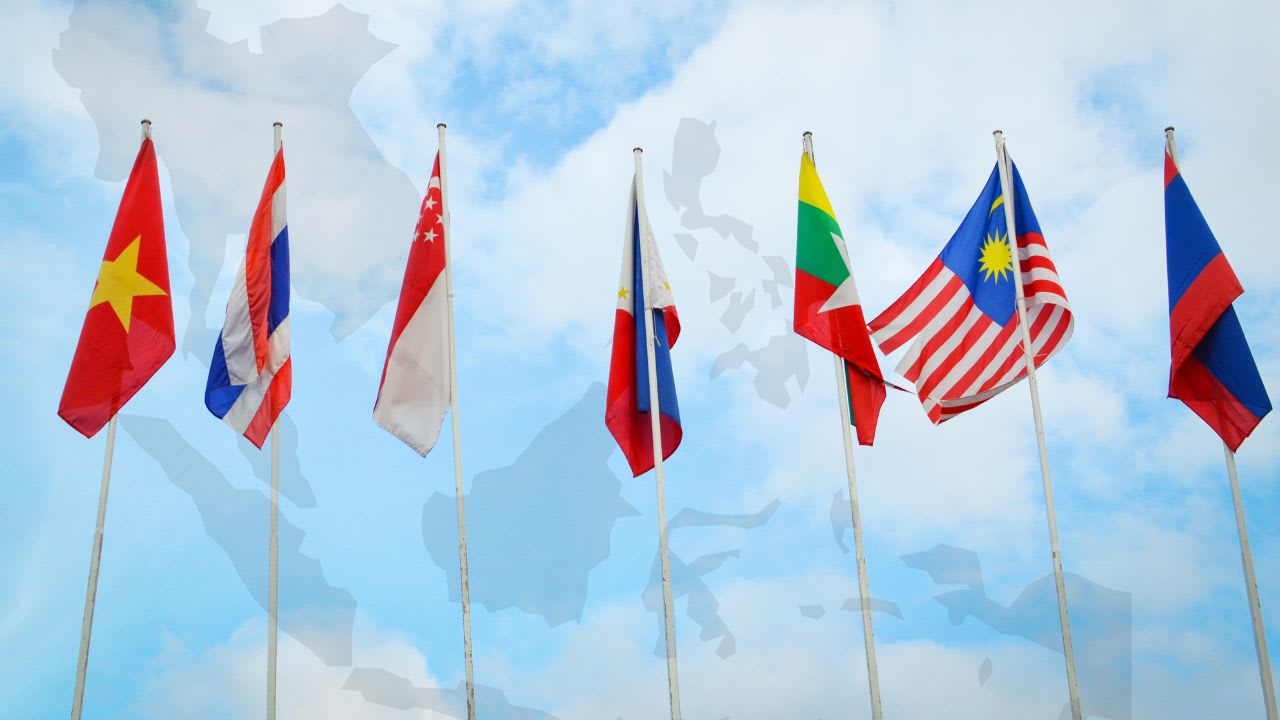Core skills in Southeast Asia

Southeast Asia remains a hotbed of economic activity, with a young and growing population, rapid digitalisation, and a burgeoning middle class. Growing digital economies in the region present a wealth of opportunities for skilled professionals seeking career advancement not just within ASEAN, but also throughout the globe.
But more than just a promising market for job seekers, Southeast Asia is also rapidly becoming a crucial source of talent, especially in technology, due to the rapid pace of digitalisation.
In fact, the Economic Research Institute for ASEAN and East Asia forecasts the region to contribute around $1 trillion, or about 10%, to global digital trade by 2030.
The study found that Southeast Asia’s youthful demographic, which consists primarily of digital natives, is the key driving force of the rapid digitalisation in the region. As countries across ASEAN begin to ramp up digital and AI-oriented masterplans, it wouldn’t be long before this young population becomes a steady source of tech talent.
But even at this moment, the region already has a deep talent pool that is skilled enough to compete in the global talent market. This article lists down current and emerging core skills you can find in the deep and diverse talent market of Southeast Asia.
Read More: Microsoft AI training to empower 2.5 million in ASEAN
Digital marketing skills in Southeast Asia
Southeast Asia is home to a booming e-commerce industry. The e-Conomy report by Google, Temasek, and Bain & Company found that the region's digital economy hit $100 billion in revenue in 2023, driven largely by the e-commerce, travel, and media sectors.
Behind the rapid growth of e-commerce in Southeast Asia is a thriving pool of competent digital marketing professionals. These include talent equipped with skills such as SEO, SEM, content marketing, social media marketing, and more.
Digital marketing professionals in Southeast Asia were tried and tested to help businesses reach their target audience, build brand awareness, and drive sales in a highly competitive landscape with an aggressive startup ecosystem.
With all momentum in full swing, the world can expect Southeast Asia to deliver more digital marketing talent, especially from Singapore, Malaysia, and the Philippines–countries that Statistica reported have the highest online media market value in the region.
Read More: Does the concept of ‘hire slow, fire fast’ work in Southeast Asia?
Southeast Asia’s tech talent boom
The growing digital economy of Southeast Asia is also giving rise to globally competitive tech talent in the region that could soon rival the likes of India and China.
Governments have been investing in programs that will equip the region’s young population with the technical skills needed to advance the digital economy, including Singapore’s AI and TechSkills Accelerator programs, Malaysia’s Digital Economy Corporation, Thailand 4.0, Vietnam’s National Digital Transformation Program, and the Philippines AI Roadmap, among others.
On a regional level, ASEAN countries have also collaborated to craft a Digital Masterplan 2025 that aims to enhance digital literacy and skills in the region. This includes initiatives that focus on developing ICT infrastructure and skills.
Even as these programs are ongoing, Southeast Asia has already begun offering talent with tech-related skills in software development, UI/UX, data analytics, coding and programming, and more. The rise of AI and machine learning is expected to further shape the booming tech talent in the region.
Read More: SkillsFuture opens 30,000+ courses to Singaporeans
Communication and intercultural skills
the diverse and dynamic region of Southeast Asia, language proficiency is a valuable asset for professionals seeking to thrive in the globalised economy. English, being the international language of business, and Mandarin, with the rise of China's economic influence, are two of the most sought-after languages in the region.
According to the EF English Proficiency Index, Singapore and the Philippines consistently rank high in English proficiency, reflecting the emphasis on English education in these countries. Malaysia and Brunei Darussalam also demonstrate strong English proficiency, while other Southeast Asian countries are actively working to improve their English skills.
Mandarin proficiency is also gaining traction in Southeast Asia, with countries such as Singapore, Malaysia, and Thailand incorporating Mandarin into their education systems. The growing number of Chinese companies investing in Southeast Asia is further fueling the demand for Mandarin-speaking professionals.
And because of Southeast Asia’s diverse landscape, people in this region are highly adaptable culturally. Combine this with excellent communication skills and you get the reason why Southeast Asia continues to be a prime source of talent in the realm of customer service, virtual assistant, and project management–roles that are crucial in today’s fast and globalised business environment.
Read More: How the Philippines is adopting AI in the BPO industry
Southeast Asia towards the future
Southeast Asia is a dynamic region brimming with potential, and its workforce is a testament to its adaptability and eagerness to embrace new skills. The combination of rapid digitalisation, a young and growing population, and a diverse cultural landscape creates a fertile ground for talent development.
By investing in education, fostering continuous learning, and embracing technological advancements, Southeast Asia can further solidify its position as a global talent hub. This not only benefits the region itself but also provides opportunities for businesses worldwide to tap into a skilled and motivated workforce.
Read More: Employers in Asia Pacific rethink salary budgets for 2024-25
As the world becomes increasingly interconnected, Southeast Asia’s diverse and dynamic talent pool is poised to play a crucial role in shaping the future of work.
So what are you waiting for? Join us and stay abreast on the latest insights and offerings at People Matters TechHR Pulse Philippines 2024. Click now to know more. Stay tuned at #TechHRPulsePhilippines.


